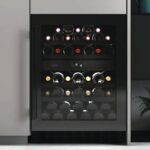Viking Wine Cooler Temperature Fluctuations
Post Date: June 20, 2024

A Viking wine cooler is not just a storage unit; it’s a sanctuary for your precious wine collection, where temperature stability is paramount. Yet, the occurrence of temperature fluctuations can disrupt this sanctuary, potentially compromising the quality of your wines. In this detailed guide, we will explore the multifaceted causes behind temperature fluctuations in Viking wine coolers, provide comprehensive DIY solutions to combat them effectively, and outline preventive measures to maintain consistent cooling performance.
Causes of Temperature Fluctuations
Understanding the root causes of temperature fluctuations is crucial for implementing effective solutions. Here are some common culprits:
- Faulty Thermostat: A malfunctioning thermostat can misread temperature cues, leading to erratic cooling cycles and temperature swings.
- Blocked Vents: Accumulated dust, debris, or even inadvertent obstruction of the vents can impede airflow, disrupting the uniform distribution of cold air inside the cooler.
- Compressor Issues: Whether it’s due to wear and tear or insufficient maintenance, compressor problems can compromise its ability to maintain stable temperatures.
- Improper Placement: Placing the wine cooler in direct sunlight, near heat-emitting appliances, or in areas with fluctuating ambient temperatures can exacerbate temperature fluctuations.
- Overcrowding: Overfilling the wine cooler beyond its recommended capacity restricts airflow, hindering proper temperature regulation.
DIY Solutions
Addressing temperature fluctuations doesn’t always necessitate professional intervention. Here are some effective DIY solutions:
1. Check Thermostat Calibration
- Use a separate thermometer to cross-reference the temperature readings displayed on the cooler’s thermostat.
- If discrepancies are detected, recalibrate the thermostat following the manufacturer’s guidelines to ensure accuracy.
2. Ensure Proper Ventilation
- Regularly inspect the vents for any blockages, such as dust, dirt, or debris.
- Utilize a soft brush or a vacuum cleaner with a brush attachment to gently remove any obstructions, facilitating unimpeded airflow.
3. Clean the Condenser Coils
- Safely unplug the wine cooler and locate the condenser coils, typically situated at the rear or bottom of the unit.
- Employ a specialized coil cleaning brush or a vacuum cleaner with a brush attachment to meticulously remove accumulated dust and debris from the coils.
4. Verify Door Seal Integrity
- Methodically inspect the integrity of the door seal for signs of wear, tear, or damage.
- Thoroughly cleanse the seal with a solution of warm, soapy water and a soft cloth, and promptly replace it if compromised to maintain optimal sealing efficiency.
5. Ensure Proper Placement
- Strategically position the wine cooler in a well-ventilated, shaded area, devoid of direct sunlight and away from heat-generating appliances.
- Allow ample clearance around the cooler to facilitate unrestricted airflow and optimize cooling performance.
Preventive Measures
Proactive maintenance and vigilance are key to preempting temperature fluctuations:
- Scheduled Maintenance Checks: Establish a regular maintenance schedule to conduct comprehensive inspections, cleaning procedures, and component assessments to preemptively identify and address potential issues.
- Temperature Monitoring: Routinely monitor the internal temperature of the cooler using a reliable thermometer, promptly adjusting settings as needed to maintain optimal conditions.
- Avoid Overcrowding: Adhere to the recommended bottle capacity to prevent overcrowding, thereby preserving adequate airflow and mitigating temperature differentials.
By implementing these meticulous DIY solutions and adopting a proactive approach to preventive maintenance, you can effectively mitigate temperature fluctuations in your Viking wine cooler, safeguarding the integrity and longevity of your cherished wine collection.








